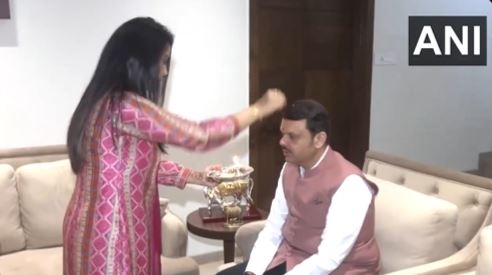François Fillon is the man to take on Le Pen in France's 2017 presidential race

And so it is decided. François Fillon, France's mild-mannered, reflective former prime minister, will stand as the candidate for the centre-right in the 2017 French presidential elections.
Fillon's meteoric rise from near obscurity to the probable future president of the republic is a timely reminder that predictions rarely ring true in politics - at least not in 2016. This is no anti-establishment figure, however. He has five years of leadership under his belt from serving as Nicolas Sarkozy's lieutenant. But his candidacy has nevertheless stunned both supporters of Sarkozy and of Alain Juppé - the man many tipped as the favourite for the republican candidacy.
First, he took out Sarkozy in the first round of the primary with a shock 44% of the vote. Then he saw off Juppé in the second round, taking 66.5% of the vote to his rival's 33.5%.
But Fillon now faces an uphill battle. He has won over his own party in the primary but must now convince the wider French electorate that he is the man to beat the Marine Le Pen in the presidential elections in April and May.
In many ways, Fillon's policies appeal to those French people minded to support the far-right Le Pen and her Front National (FN) party. A devout Catholic and arch-conservative, Fillon believes that homosexual couples should be stripped of the right to adopt and of any access to fertility treatments. He has also praised Margaret Thatcher's economic ideals. Fillon is also an outspoken critic of the place of Islam in French society, arguing that it poses a threat to French social stability.
Fillon will therefore seek to take on Le Pen over issues where her party has traditionally been weakest: on the economy and on foreign affairs. The Front National has no real track record of political power, apart from a handful of local councils won in the 1980s and 1990s, and the party has just two députés in the National Assembly. This means the party lacks any previous experience of managing budgets and balancing the books.
While this is, on the one hand, a real boost to the FN's reputation as anti-establishment, it allows Fillon to present himself as a safe pair of hands. He wants to strip the French state down to the bare minimum to put money back in the pockets of voters. This includes attacking the sacred 35-hour working week for public servants.
Eyes on the prize
Like Le Pen, Fillon is a fan of Vladamir Putin and will almost certainly mirror Donald Trump's rapprochement with the Russian leader. Yet Fillon will position himself as someone who appeals to leaders across the world, including the UK, building on his already staunch anglophile views. He is also able to lay claim to the sort of Catholic heritage that appeals to a large tranche of the centre-right electorate who might be swayed by Le Pen's politics but who nevertheless would prefer the Gaullist model of the strong, incorruptible (male) president to be preserved. Never before has a woman been elected as president of the current fifth republic and it may well be the base issue of Fillon's gender, as opposed to his policies, that sees him over the line in 2017.
Fillon will not, though, rest on his laurels. It would be deeply surprising if his campaign reflects the errors of Sarkozy's efforts in 2012, when the incumbent president tried and failed to take on the Front National head-on over immigration and law and order. He ultimately failed to convince the electorate that he deserved a second term in office, losing to François Hollande in the second round.
Instead, expect Fillon to largely ignore law and order and focus instead on family morals, the economy and his experience of working with France's European and international collaborators.
It would be foolish to write off Le Pen entirely in this period of deep mistrust of established parties and of economic and social fragility. But with deep divisions over the role of Islam in French society, Fillon has, and will, make the case for a softer, though nevertheless still deeply conservative, model of the right in France.
David Lees, Teaching Fellow in French Studies, University of Warwick
This article was originally published on The Conversation. Read the original article.
First published: 29 November 2016, 19:07 IST





![BJP's Kapil Mishra recreates Shankar Mahadevan’s ‘Breathless’ song to highlight Delhi pollution [WATCH] BJP's Kapil Mishra recreates Shankar Mahadevan’s ‘Breathless’ song to highlight Delhi pollution [WATCH]](https://images.catchnews.com/upload/2022/11/03/kapil-mishra_240884_300x172.png)

![Anupam Kher shares pictures of his toned body on 67th birthday [MUST SEE] Anupam Kher shares pictures of his toned body on 67th birthday [MUST SEE]](https://images.catchnews.com/upload/2022/03/07/Anupam_kher_231145_300x172.jpg)






